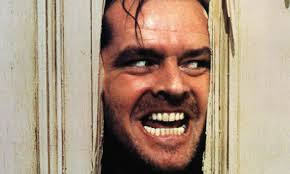A lot of well-worn advice gets passed around a writing workshop, things like “Show, Don’t Tell,” and “Write What You Know.”
Students learn all sorts of “rules” about writing in their introductory classes, and then they get to ADVANCED WORKSHOP where they learn to forget the rules and trust their instincts, but the problem is, those instincts are poorly formed.
I’m old enough to have learned the rules, thrown the rules out, trusted my instincts, abandoned them, circled back around to some of the rules and found that a few are finally making some real, serious sense. The one I’m thinking about lately is the admonition, most widely attributed to William Faulkner: “In writing, you must kill all your darlings.”
The “darlings” referred to are those phrases, or paragraphs, or even whole pages, that you really think are the bees’ knees, writing that you pass right over during editing, because, why change that perfect phrase, that sentence that was clearly delivered right into your brain via a host of the angels of dead, brilliant writers?
Here’s the thing. Sometimes those phrases actually stink. Only, you can’t see it, because you are in love with your own staggering talent. Such a thing happened to me with the first chapter of my recently completed novel, “Happy, Indiana.”
You may recall that I went away for a whole week, to a
friend’s house in the way-too-hip-for-me city of Austin (where every woman is wearing a flouncy sundress and cowboy boots with a flair that says she just grabbed any old thing out of her closet, and I am wearing two blue things from Kohls), and I wrote my first chapter. First chapters of course are hugely important and full of so many must-dos.
You must establish the voice and tone of the book. You must establish your main character’s motivation. You must establish the setting. You must give a preview of the main plotpoints, at the very least giving a hint at some struggle the character is going to have to overcome during the course of the book. You must have enough pacing so that the reader wants to read on to chapter two. You must do all this, if you are a literary novelist, with beautiful prose.
It’s not easy. And so that first chapter takes on a life of its own. It becomes almost a separate entity from the rest of the book, from chapters 2-25 where I really “told the story.” The first chapter becomes idolized and bronzed and set on a shelf. By the time I finished the first draft of the novel, I’d read that first chapter so many times, I didn’t even “see” it anymore. It’s like the basket of clean, folded laundry that almost always resides in my bedroom. I could put it away…but what basket? Where?
Once I starting showing my book to friends, I realized my error. They loved the book…once they got to chapter three. Chapter three is too late, folks. Harsh as it is, agents won’t read past chapter one unless they are hooked, and you need an agent if you want to publish in a big, or even semi-big way. And then you need to hook a publisher, and then, eventually, readers.
I rewrote my first three chapters, taking out anything that wasn’t essential. I seriously sliced and diced. I started the book right at a critical moment of action with my character already struggling with challenges. There’s no sitting on the on-ramp. You’ve got to merge into traffic, and fast, even for literary books these days. Everyone’s attention span is getting shorter and shorter, and I can clench my fists against that fact as much as I want, or I can accept it and work harder.
I had to work harder, to examine a bunch of paragraphs I loved and really ask, what do I love about this? Because if I only love the style, it has to go. If it doesn’t advance my plot, add something to deepen my protagonist, etc., it has to go.
There were way more darlings in that first chapter than anywhere else in the book. Enough that I’ve decided to make a new rule, and I’m writing it here so you hold me to it. From now on, with future books, I will craft a first chapter, but it will only be a place-holder. I will know, right from the start, that when I finish the book and have a much better idea of where it actually went (rather than where I thought it was going to go), I must take a hatchet to chapter one, knock down its door “Here’s Johnny!” style and leave no word unscathed.
